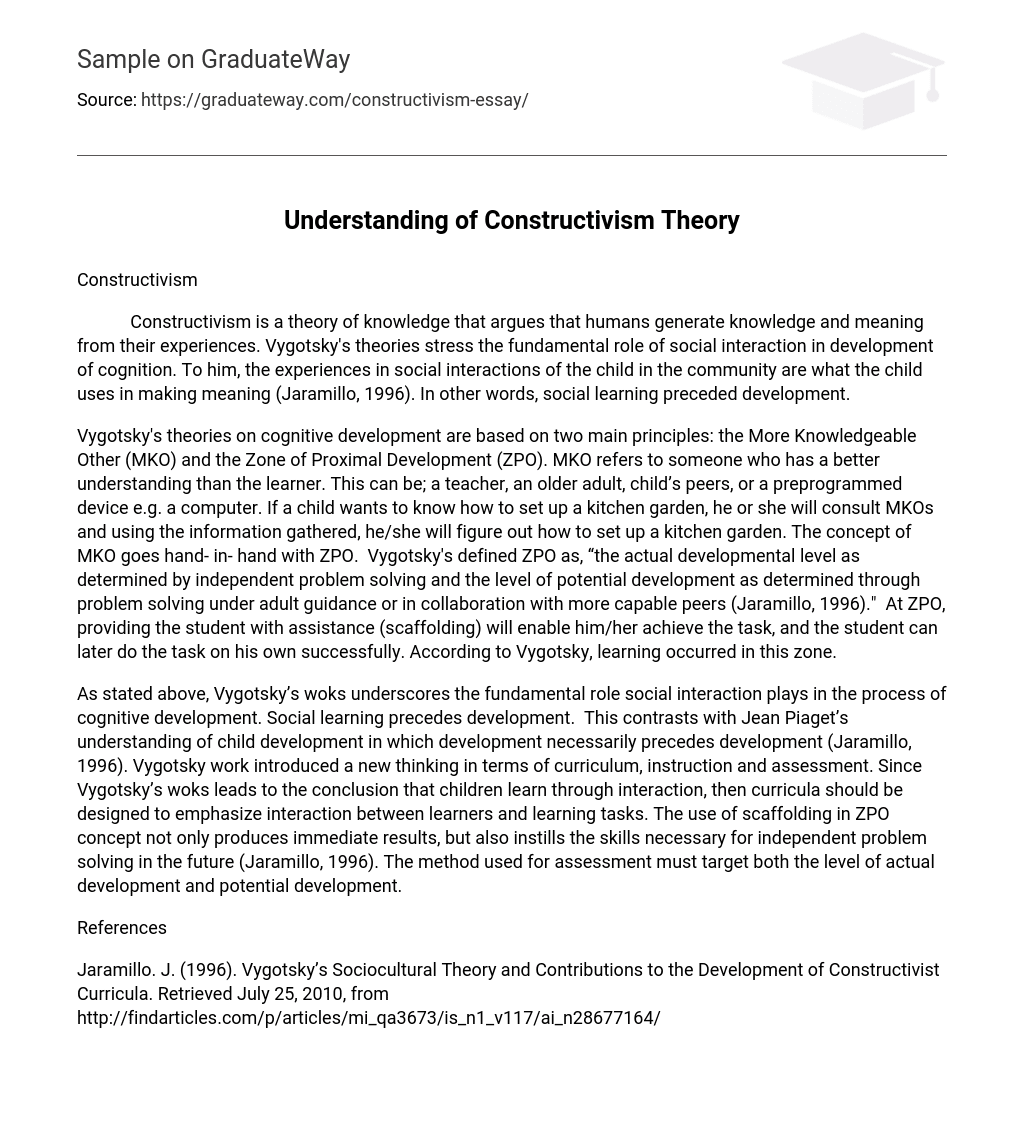Constructivism
Constructivism is a theory of knowledge that argues that humans generate knowledge and meaning from their experiences. Vygotsky’s theories stress the fundamental role of social interaction in development of cognition. To him, the experiences in social interactions of the child in the community are what the child uses in making meaning (Jaramillo, 1996). In other words, social learning preceded development.
Vygotsky’s theories on cognitive development are based on two main principles: the More Knowledgeable Other (MKO) and the Zone of Proximal Development (ZPO). MKO refers to someone who has a better understanding than the learner. This can be; a teacher, an older adult, child’s peers, or a preprogrammed device e.g. a computer. If a child wants to know how to set up a kitchen garden, he or she will consult MKOs and using the information gathered, he/she will figure out how to set up a kitchen garden. The concept of MKO goes hand- in- hand with ZPO. Vygotsky’s defined ZPO as, “the actual developmental level as determined by independent problem solving and the level of potential development as determined through problem solving under adult guidance or in collaboration with more capable peers (Jaramillo, 1996).” At ZPO, providing the student with assistance (scaffolding) will enable him/her achieve the task, and the student can later do the task on his own successfully. According to Vygotsky, learning occurred in this zone.
As stated above, Vygotsky’s woks underscores the fundamental role social interaction plays in the process of cognitive development. Social learning precedes development. This contrasts with Jean Piaget’s understanding of child development in which development necessarily precedes development (Jaramillo, 1996). Vygotsky work introduced a new thinking in terms of curriculum, instruction and assessment. Since Vygotsky’s woks leads to the conclusion that children learn through interaction, then curricula should be designed to emphasize interaction between learners and learning tasks. The use of scaffolding in ZPO concept not only produces immediate results, but also instills the skills necessary for independent problem solving in the future (Jaramillo, 1996). The method used for assessment must target both the level of actual development and potential development.
References
Jaramillo. J. (1996). Vygotsky’s Sociocultural Theory and Contributions to the Development of Constructivist Curricula. Retrieved July 25, 2010, from http://findarticles.com/p/articles/mi_qa3673/is_n1_v117/ai_n28677164/





